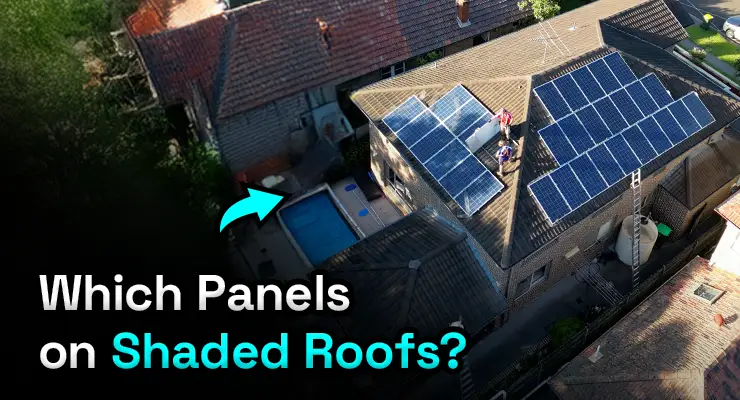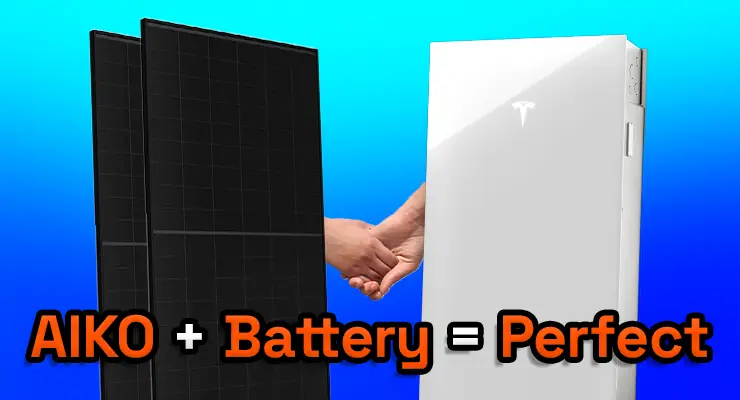
Fast read
Solar panels are indeed “green,” providing an excellent return on environmental investment.
They embody energy from manufacturing to installation, paid back through clean energy production. With the efficiency of panels increasing, the energy payback time reduces, making panels carbon neutral faster.
In Australia, for instance, payback can take less than 1.5 years. Manufacturing processes are becoming more sustainable, while the use of solar panels reduces emissions and conserves raw materials for solar panels.
Solar panels are both long-lasting and recyclable, representing a harmonious relationship with the environment. This makes them an obvious choice for sustainable energy.
Are solar panels truly environmentally friendly?
Buying solar panels is a smart choice. It saves money and doesn’t have a harmful environmental impact. Solar panels are getting better at making electricity from sunlight! So, even though they need a similar amount of energy to make, more efficient solar panels pay back that energy quickly making them a green technology.
When solar panels are super efficient, they pay back the energy used to make them faster. This means you start saving money on energy bills sooner.
Plus, the more renewable energy solar panels make, the quicker they become carbon neutral. That’s important because it helps balance out the carbon emissions from making them in the first place.
In places like Australia, solar panels usually pay back their energy input in less than 1.5 years. With better solar technology and quicker payback times, solar panels are a smart choice for anyone looking to save money and help the environment.
How long does it take to make a panel carbon-neutral?
In Brisbane, Australia, a 400W panel’s average energy payback is about one year, one month, and five days. An older 330W panel takes longer with the payback for the less efficient panel being 25% more.
Manufacturers using solar panels reduce energy costs, and even put panels on their factory roofs. This reduces the payback time further.
Therefore quality solar panels often generate higher environmental benefits than less efficient, shorter lifespans and faster degradation panels, as they use a similar amount of raw materials in manufacturing.
From sand to silicon – the birth of solar panels
Solar panels are typically made with materials such as silicon. Thinking about this in relation to the entire life cycle of the panel is crucial. Admittedly, the initial stages require energy and some chemical inputs, but the industry has made significant strides in minimising waste and emissions during manufacturing. Through the implementation of innovative techniques and continuous technological advancements, the carbon footprint of the production process of solar panels is steadily decreasing.
Unlike the relentless extraction of fossil fuels, the raw materials required for solar panels, such as silicon, are abundant in nature. Furthermore, as the solar industry matures, efforts are being made to make the manufacturing process more sustainable. This includes initiatives to improve resource efficiency, reduce water consumption, and develop recycling methods to reclaim valuable materials from decommissioned panels.
In addition, switching to renewable sources such as solar power is crucial for reducing the negative impacts of climate change. Investing in solar energy means using a renewable resource instead of fossil fuels. This helps reduce greenhouse gas emissions worldwide.

Sunshine into clean energy
Once solar panels are installed, they start a journey that lasts for decades, using sunlight to make clean energy. It’s amazing because it’s so simple and pure. Solar panels capture the sun’s energy, which is abundant, free, and renewable. And they do it without making any greenhouse gases, pollution, or noise.
Unlike regular energy sources, solar panels don’t harm the environment or bother people nearby. They work quietly and efficiently, reducing the need for dirty fuels and making the air cleaner and healthier.
So, solar panels aren’t just clean energy – they’re also about simplicity and purity, making our world better for a long time. They represent a shift towards a more sustainable future, where clean energy is the norm. By embracing solar power, we can play a vital role in combating climate change and protecting the environment for future generations
Ageing well – the longevity of well-built solar power
Solar panels last a long time, usually 25 to 30 years or even more. This means they keep making clean energy for a long while, spreading out the environmental costs of making them. When it’s time to get rid of them, there are ways to recycle them and get back valuable materials.
Because solar panels last so long, they don’t need to be replaced often, which is good for the environment. And now, there are better ways to recycle them when they’re no longer useful, so we can reuse important materials like silicon and metal.
It’s important for everyone to know that solar panels are good for the environment and help with recycling efforts. This way, we can keep using solar power without causing harm to the planet.
So, solar panels aren’t just for clean energy – they’re also helping us take care of the Earth for a long time to come.
A clear winner – Solar vs fossil fuels
Comparing solar energy to fossil fuels brings the full environmental impact into perspective. While fossil fuels scar landscapes, pollute air and water, and contribute to global warming, solar panels offer a path to mitigate these effects. The shift towards solar represents a step away from practices that have long threatened our planet. The embrace of solar energy is not merely a choice but a development we need to speed up to stop threatening climate change.
Solar panels are created and then used for many years in the sun. This process demonstrates human creativity and our ability to live in harmony with the environment.
Every technology faces challenges. However, improvements in production methods, efficiency, and recycling practices are constantly being made for solar panels. This ensures that they remain at the forefront of eco-friendly energy generation.
Investing in solar panels is not only a wise economic decision but also a commitment to a green future. It represents the belief in a world where technology and nature can exist together peacefully. In this world, energy is obtained from the sun’s natural power instead of harmful mining and blasting techniques. Solar panels are more than a product; they are a symbol of a change to greater sustainability.


